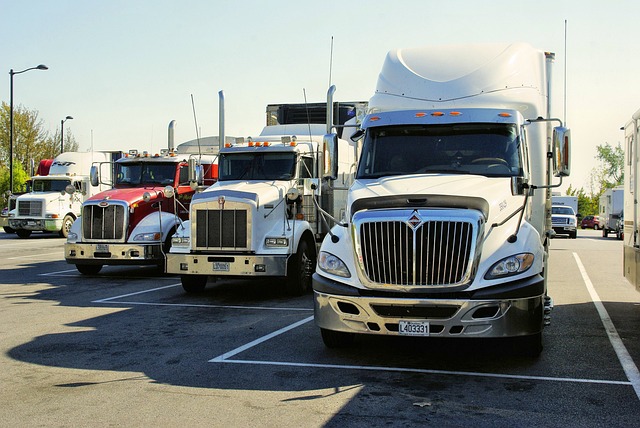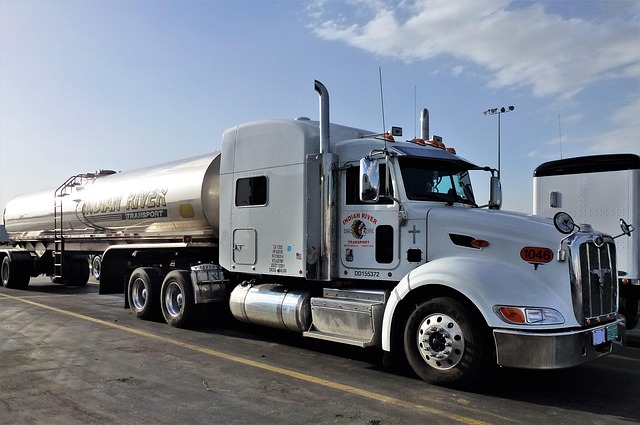Truck insurance for owner-operators is vital for legal protection and financial security, addressing unique risks of commercial vehicle operation. It includes liability, collision, cargo, medical expense, and disability coverage. Owner-operators should understand policy nuances, compare specialized insurers, and tailor policies to their specific needs like vehicle type, age, cargo, and mileage to avoid unnecessary costs while ensuring comprehensive protection against accidents and liabilities.
“In the demanding world of trucking, ensuring adequate insurance coverage is not just beneficial but crucial for self-employed truckers. This comprehensive guide delves into the intricate details of truck insurance for owner-operators, a specialized form of protection tailored to their unique risks and challenges. Understanding these complexities is essential for making informed decisions regarding your business’s future.”
- Understanding Truck Insurance for Owner-Operators: A Comprehensive Guide
- Unique Risks Faced by Self-Employed Truckers and How Insurance Addresses Them
- Types of Truck Insurance Coverage Options Available to Owner-Operators
- Navigating the Process: How to Choose the Right Truck Insurance Policy for Your Business
Understanding Truck Insurance for Owner-Operators: A Comprehensive Guide

For self-employed truckers, navigating the world of truck insurance can seem like a daunting task, but understanding your coverage options is crucial for both legal compliance and financial protection. Truck insurance for owner-operators goes beyond basic car insurance, as it encompasses various specialized components designed to address the unique risks associated with operating commercial vehicles. This includes liability coverage to protect against potential damages or injuries caused during transport, collision or comprehensive coverage to safeguard your truck in case of accidents or theft, and cargo insurance to secure the value of your freight.
A comprehensive guide to truck insurance for owner-operators should also delve into additional protections such as roadside assistance, displacement coverage during repairs, and legal defense fees. Understanding the nuances of these policies is essential, as different scenarios may trigger specific coverages. For instance, knowing when and how medical payments coverage applies or what circumstances necessitate unemployment loss protection can make a significant difference in managing unexpected events. By familiarizing themselves with these intricacies, self-employed truckers can ensure they are adequately insured for their operations.
Unique Risks Faced by Self-Employed Truckers and How Insurance Addresses Them

Self-employed truckers face unique risks that differ from their employed counterparts. As owner-operators, they are responsible for not only their own safety but also the security and integrity of their vehicle, cargo, and business. This includes managing unpredictable road conditions, potential mechanical failures, and the ever-present risk of accidents, which can lead to significant financial losses. Moreover, legal liabilities associated with transporting goods across state lines or international borders further complicate matters.
Truck insurance for owner-operators is designed to address these specific challenges. Comprehensive coverage options include liability protection against third-party claims, physical damage to the truck, and cargo coverage to safeguard valuable freight. Additionally, medical expenses and disability benefits can protect self-employed drivers in case of accidents or health issues. This specialized insurance not only mitigates financial risks but also offers peace of mind, ensuring that owner-operators are equipped to handle any unforeseen circumstances that may arise during their journeys.
Types of Truck Insurance Coverage Options Available to Owner-Operators

When it comes to insuring their trucking business, owner-operators have a variety of specialized truck insurance coverage options to choose from. These policies are tailored to protect against unique risks associated with operating commercial vehicles. Comprehensive coverage, for instance, can safeguard against damage to both the truck and its cargo, while liability insurance is crucial for mitigating financial losses in case of accidents or incidents involving third parties.
Additionally, owner-operators may consider options like collision insurance, which covers repairs or replacement costs in the event of a crash, and freight insurance to protect against loss or damage to the goods they transport. Some policies also offer specific coverage for medical expenses and legal fees related to on-the-job incidents. Understanding these diverse coverage options is essential for owner-operators to make informed decisions and secure adequate protection for their trucking operations.
Navigating the Process: How to Choose the Right Truck Insurance Policy for Your Business

Navigating the process of choosing the right truck insurance policy can seem daunting, but it’s a crucial step for self-employed truckers to protect their investments and ensure compliance with regulations. Start by understanding your specific needs as an owner-operator. Consider factors like the type and age of your vehicle(s), the cargo you transport, and the miles driven annually. These variables significantly impact insurance rates.
Research different insurance providers offering specialized coverage for truckers. Compare policies based on scope of coverage, deductibles, and exclusions. Remember, comprehensive coverage is essential to shield against unexpected events like accidents, natural disasters, or theft. Additionally, consider liability insurance to protect your business from claims related to property damage or injuries sustained by others. Opting for a policy that suits your operational needs will ensure you’re adequately insured without paying for unnecessary extras.
For self-employed truckers, securing appropriate truck insurance for owner-operators is a critical step in mitigating risks and safeguarding their business. By understanding the unique challenges they face, such as liability, cargo damage, and on-the-road incidents, these individuals can make informed decisions when choosing from various coverage options. The comprehensive guide above highlights the importance of specialized coverage, offering insights into navigating the process effectively. Armed with knowledge about different policies, self-employed truckers can select the right truck insurance, ensuring they’re prepared for any eventuality on the open road.
